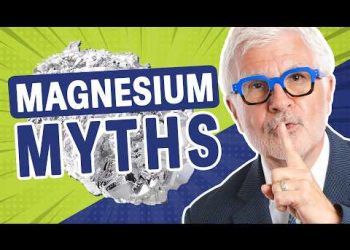Introduction: The Debate on High Protein Diets
For years, high protein diets have been a hot topic when it comes to health and fitness. With a wide variety of benefits such as muscle growth, weight management, and satiety, these diets have gained popularity among fitness enthusiasts and health-conscious individuals alike. However, recent research shining a light on the potential downsides to high protein consumption might change how we view this trendy dietary approach.
The Shocking Research Findings
Recent studies have uncovered surprising effects of high protein diets on life expectancy. The research indicates that while these diets can lead to short-term benefits, they may have adverse effects on long-term health. Scientists have discovered a potential link between prolonged high protein consumption and increased mortality risk, leading to a re-evaluation of what constitutes a balanced diet.
Understanding the Mechanisms
So why does excess protein potentially reduce life expectancy? Part of the answer lies in metabolism and the way our bodies process proteins. The digestion and metabolization processes of proteins produce byproducts that may influence aging and cellular health. This has sparked further inquiry into how our dietary choices affect overall longevity.
The Risks of Animal-Based Proteins
The study also highlights that not all proteins are made equal. Animal-based proteins, often the staple of high-protein diets, come with their own set of risks. High intake of red meats, for instance, has been associated with increased risks of certain diseases. This emphasizes the importance of selecting protein sources wisely to maintain a balanced and healthy diet.
Plant-Based Proteins as a Healthier Alternative
Contrasting with the risks associated with animal proteins, plant-based proteins appear to offer a safer alternative. Foods like beans, lentils, and tofu not only provide necessary proteins but also include fiber and nutrients that contribute positively to health. Emphasizing a shift towards plant-based proteins might mitigate the risks associated with traditional high-protein diets.
Navigating Through Conflicting Information
Despite these findings, navigating through the plethora of dietary information can be overwhelming. Conflicting studies and nutritional advice make it challenging to decipher the best course of action for one’s diet. It’s crucial to approach dietary changes with a critical eye and possibly seek guidance from healthcare professionals.
The Doctor’s Perspective
Within the video, a leading doctor reacts to these findings, discussing the implications they might have on dietary recommendations. The expert underscores the importance of moderation and balance, rather than adhering strictly to popular diet trends that might lead to unintended health consequences over time.
Short-Term Benefits Versus Long-Term Effects
While temporarily effective for weight loss and muscle building, the potential long-term risks highlighted in the research call for a more balanced approach. Understanding the trade-offs between immediate results and sustained health outcomes is essential for making informed dietary choices.
Strategies for a Balanced Diet
To foster a sustainable and healthy dietary plan, integrating a variety of protein sources and incorporating whole foods rich in nutrients and fiber might be beneficial. A diverse diet that includes fruits, vegetables, whole grains, and lean proteins can help mitigate the risks associated with excessive protein intake.
Conclusion: Rethinking Protein Consumption
The findings about high protein diets are indeed shocking, urging us to rethink our approach to protein consumption. Balancing protein intake with other essential nutrients plays a pivotal role in maintaining a healthy lifestyle and enhancing life expectancy. It’s a call to scrutinize our dietary habits and make choices that support both short-term fitness goals and long-term health.











